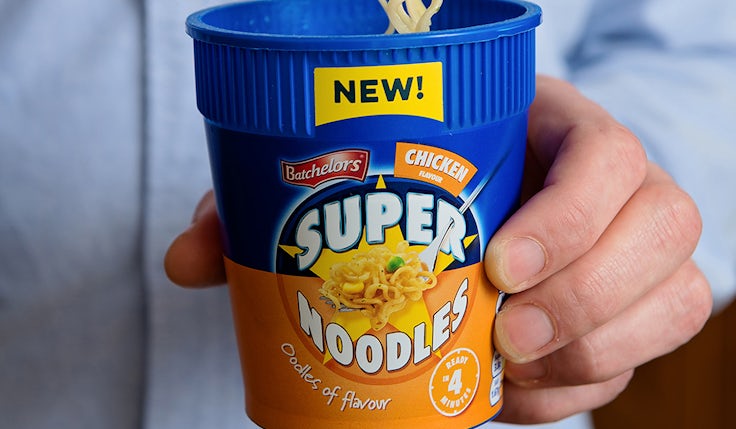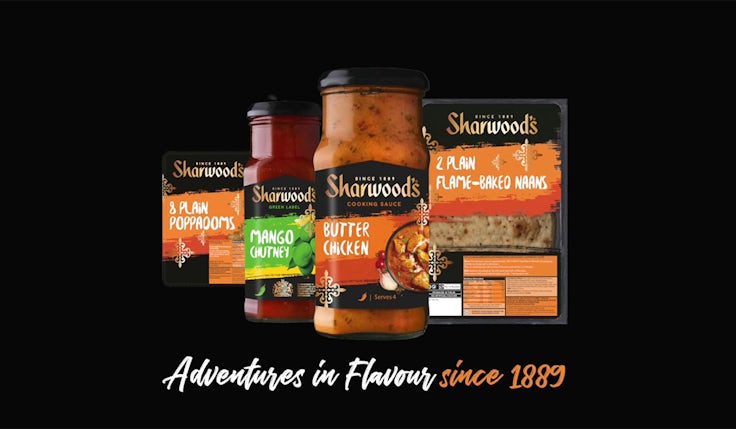Premier Foods to upweight influencer marketing activity
Premier Foods has also highlighted the role of the marketing function in driving impactful innovation for the food business, as it appoints a new CMO.
 Premier Foods says it is “evolving” its marketing strategy to make more use of influencers.
Premier Foods says it is “evolving” its marketing strategy to make more use of influencers.
During a call with investors today (17 July), CEO Alex Whitehouse indicated the business, which owns brands including Mr Kipling, Bisto and Batchelors, intends to dedicate more of its marketing budget to influencer marketing.
In his opening remarks, he outlined that the company was investing in making its advertising as “engaging” and “impactful” as possible.
“We’re currently evolving to incorporate more digital media and leveraging influencers on some of our brands,” Whitehouse said.
Unilever’s CEO tells marketers to focus on ‘the 4Vs’ of social media
Premier Foods did not give details about how it plans to use influencers across its brands, with Whitehouse stating he was “not that close” to the strategy to be able to name individual creators involved, but added that “plenty” of people in the team were.
The business’s move to upweight the proportion of its marketing spend it invests into influencers comes following Unilever’s recent moves to significantly increase its creator budgets.
The strategy tweak comes as Premier Foods appoints a new chief marketing officer, Catherine Lloyd. Lloyd, who spent over 17 years at FMCG business Reckitt, replaces Yilmaz Erceyes who left the business after 10 years.
Speaking back in March, the Marmite owner said influencers would become a more significant pillar of its marketing strategy to drive what CEO Fernando Fernandez termed “desire at scale” in an era where brands have become “by default suspicious”. He also said the business would now spend 50% of its budget on social channels and invest in 20 times more influencers.
Thoughtful and impactful innovation
Premier Foods’ move to incorporate more influencer marketing into its mix comes as the business continues to gradually increases its investment overtime.
“We’ve been really clear […], we are increasing our overall marketing spend over time ahead of inflation with the intent scale up how much we’re spending behind our brands,” said Whitehouse, adding that this has been an ongoing initiative for some years.
The business has been intentionally scaling up its spend above inflation “for at least the last six years”, he said, adding that it is “probably two-thirds of the way along the road” of where it wants to be in terms of marketing spend.
Premier Foods reported branded sales growth of 1.2% during its first quarter for the 13 weeks ended 28 June, compared to the same period last year.
The CEO also highlighted the role of marketing in driving the success of innovation. Innovation has been consistently highlighted as a cornerstone of Premier Food’s success in recent years.
The way we’re increasing our overall innovation output is not by throwing more and more SKUs into the market.
Alex Whitehouse, Premier Foods
For example, in this most recent quarter, its sweet treats business saw branded sales growth of 11.4%. A “significant part” of that growth has come from the quality of the innovation programme, Whitehouse said. The company cited products such as the Mr Kipling Signature brownie bites and birthday cake tarts as being strong contributors to growth.
When asked by an investor about its innovation pipeline for the rest of the year, Whitehouse said: “The way we’re increasing our overall innovation output is not by throwing more and more SKUs into the market, because frankly there’s not enough room for them on the shelves.”
Why marketers have an ‘essential seat’ in the NPD process
What the company is really focusing on is maximising the potential of the innovation it does launch, he said.
“This is all about how the marketing team, down in the engine room, develops ideas by working with consumers, which have, frankly, just got bigger potential,” he said.
Premier Foods is clearly a business where the marketing function is extremely influential in the NPD process. This influence is something that’s far from a given in every business. According to Marketing Week’s recent Career & Salary survey, less than half (48.5%) of the over 3,500 respondents said they or their team have influence over new product development (NPD)/innovation.
Speaking about the business’s pipeline for the year to come, Whitehouse expressed confidence that the innovation coming down the line would meet this goal.






